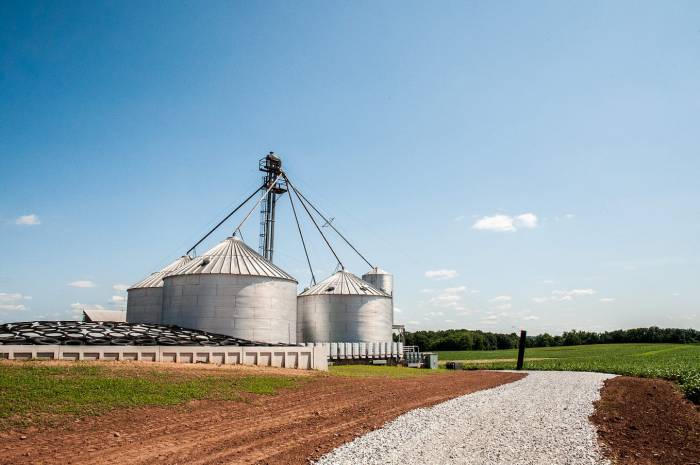Demystifying Foreclosure Laws – Foreclosure is a complex legal process that can be particularly daunting for agricultural property owners. Understanding the intricacies of foreclosure laws can help you navigate potential pitfalls and protect your investment. In this comprehensive guide, we’ll explore everything you need to know about foreclosure, from its definitions and processes to the rights of property owners.
What is Foreclosure?
Understanding Foreclosure
Foreclosure is a legal process in which a lender seeks to recover the balance of a loan from a borrower who has stopped making payments. The lender can take possession of the property, usually through a court process, and sell it to recover their losses. This process is particularly significant for agricultural property owners who often rely heavily on loans for land, equipment, and operational costs.
Types of Foreclosure
There are primarily two types of foreclosure:
- Judicial Foreclosure: This process requires the lender to go through the court system. The lender files a lawsuit against the borrower, and if the court rules in favor of the lender, the property is sold at auction.
- Non-Judicial Foreclosure: This method does not require court intervention. It is typically faster and is often outlined in the loan agreement. The lender can sell the property directly without going to court.
The Foreclosure Process: Step by Step
1. Default on Payments
The foreclosure process begins when a borrower defaults on their loan. For agricultural property owners, this may be due to various factors such as poor crop yield, market fluctuations, or unexpected expenses.
2. Notice of Default
Once a borrower has missed several payments, the lender will issue a Notice of Default. This document officially informs the borrower of the missed payments and initiates the foreclosure process.
3. Foreclosure Proceedings
Depending on the type of foreclosure, the next steps will differ:
- In a judicial foreclosure, the lender files a lawsuit. The borrower has the right to respond and contest the foreclosure.
- In a non-judicial foreclosure, the lender follows the procedures outlined in the loan agreement, often requiring a specific notice period before proceeding to auction.
4. Auction
If the lender prevails, the property will be auctioned off to recover the outstanding loan balance. For agricultural property owners, this can mean losing not only their land but also the means of livelihood.
Rights of Agricultural Property Owners
Understanding Your Rights
As an agricultural property owner facing foreclosure, it is crucial to know your rights:
- Right to Notice: You must receive proper notice of default and any subsequent legal actions.
- Right to Redeem: In many states, you have the right to redeem the property by paying off the loan balance, even after an auction.
- Right to Counsel: You have the right to seek legal counsel to help navigate the foreclosure process.
The Role of State Laws
Foreclosure laws vary significantly from state to state. It’s essential to familiarize yourself with the laws applicable in your area, as they dictate timelines, required notices, and your rights during the process. For instance, some states have more favorable laws for borrowers, allowing for extended periods to cure defaults or redeem properties.
Preventing Foreclosure: Tips for Agricultural Property Owners
Communicate with Your Lender
One of the most effective ways to prevent foreclosure is to communicate openly with your lender. If you’re experiencing financial difficulties, reaching out early can often lead to alternatives, such as loan modification or forbearance.
Explore Government Programs
There are several government programs designed to assist agricultural property owners in distress. Programs such as the USDA’s Farm Service Agency (FSA) can offer loans and grants to help manage financial hardship. Researching available resources can provide critical support during tough times.
Seek Legal Advice
Consulting with a foreclosure attorney can be invaluable. They can help you understand your rights, represent you in court, and negotiate with lenders. A knowledgeable attorney will be familiar with the nuances of foreclosure laws in your state and can help develop a strategy tailored to your situation.
Conclusion: Staying Informed and Prepared
The Importance of Awareness
Foreclosure can be a devastating experience for agricultural property owners. However, by understanding the foreclosure process, knowing your rights, and exploring preventive measures, you can better prepare yourself for potential challenges. Awareness is key; staying informed about the laws and available resources can empower you to take proactive steps in safeguarding your property.
Additional Resources
For more detailed information about foreclosure laws and assistance programs, consider visiting the National Agricultural Law Center. They offer a wealth of resources that can help agricultural property owners navigate legal issues related to foreclosure.
By taking these steps, agricultural property owners can demystify foreclosure laws and protect their investments, ensuring they remain resilient in the face of financial challenges. Remember, knowledge is power—stay informed, seek help, and don’t hesitate to take action when needed.




